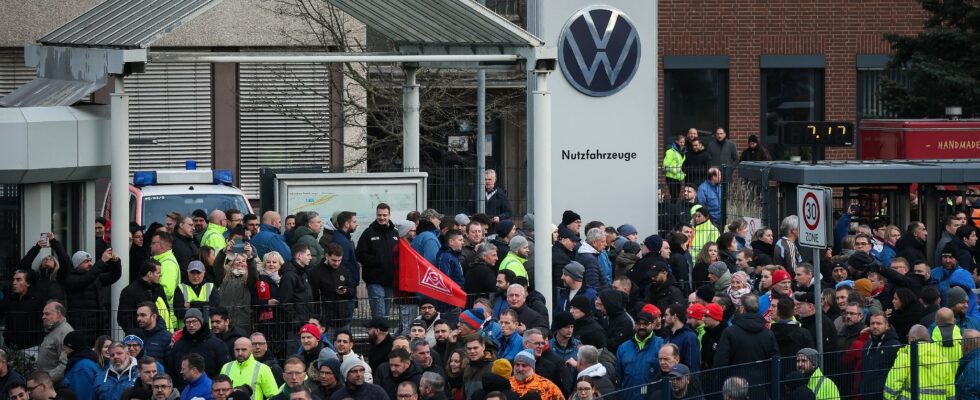Europe’s leading carmaker Volkswagen will cut more than 35,000 jobs in Germany by 2030 in order to reduce costs, while avoiding factory closures and layoffs as part of an agreement sealed on Friday to try to save the group in crisis.
The agreement provides for “a socially acceptable reduction in the workforce” of more than 35,000 people on the German sites of the Volkswagen brand by 2030, or 29% of its total workforce, announced the manufacturer, flagship of German industry . These departures will not be forced, and should in particular involve unreplaced retirements, staff representatives stressed.
“We have managed to find a solution for employees at Volkswagen sites that guarantees jobs, preserves production at the factories and at the same time allows significant future investments,” said Thorsten Gröger, negotiator for the automobile union .
He welcomed, during a press conference, cost reduction measures “which respect the red lines” of the union: “there will be no factory closure, economic layoffs are excluded”, he assured then that this scenario was not excluded by the leading European manufacturer. According to the unions, management initially wanted to cut 55,000 jobs.
4 billion euros in savings
In exchange, employees agreed to waive a certain number of bonuses and reduce production capacity in several of the group’s ten German factories. Thanks to this agreement, Volkswagen hopes to generate a total of “4 billion euros” in savings in the medium term.
“We had three priorities during the negotiations: reducing overcapacity on German sites, reducing labor costs and bringing development costs to a competitive level,” explained Thomas Schäfer, boss of the group’s flagship brand. , VW, also the most in difficulty. “We have reached viable solutions on these three subjects,” he assured.
The group, the flagship of German industry, caused a shock in September by announcing that it was preparing a drastic savings plan to restore its flagging competitiveness. Volkswagen CEO Oliver Blume continues to insist that the manufacturer’s costs are too high and the profit margins of the historic VW brand, which represents a little more than half of sales, too low.
Volkswagen is also suffering from the global slowdown in car sales, Chinese competition, and battery models that are not attractive enough which are slowing down the momentum of its transition to electric.
